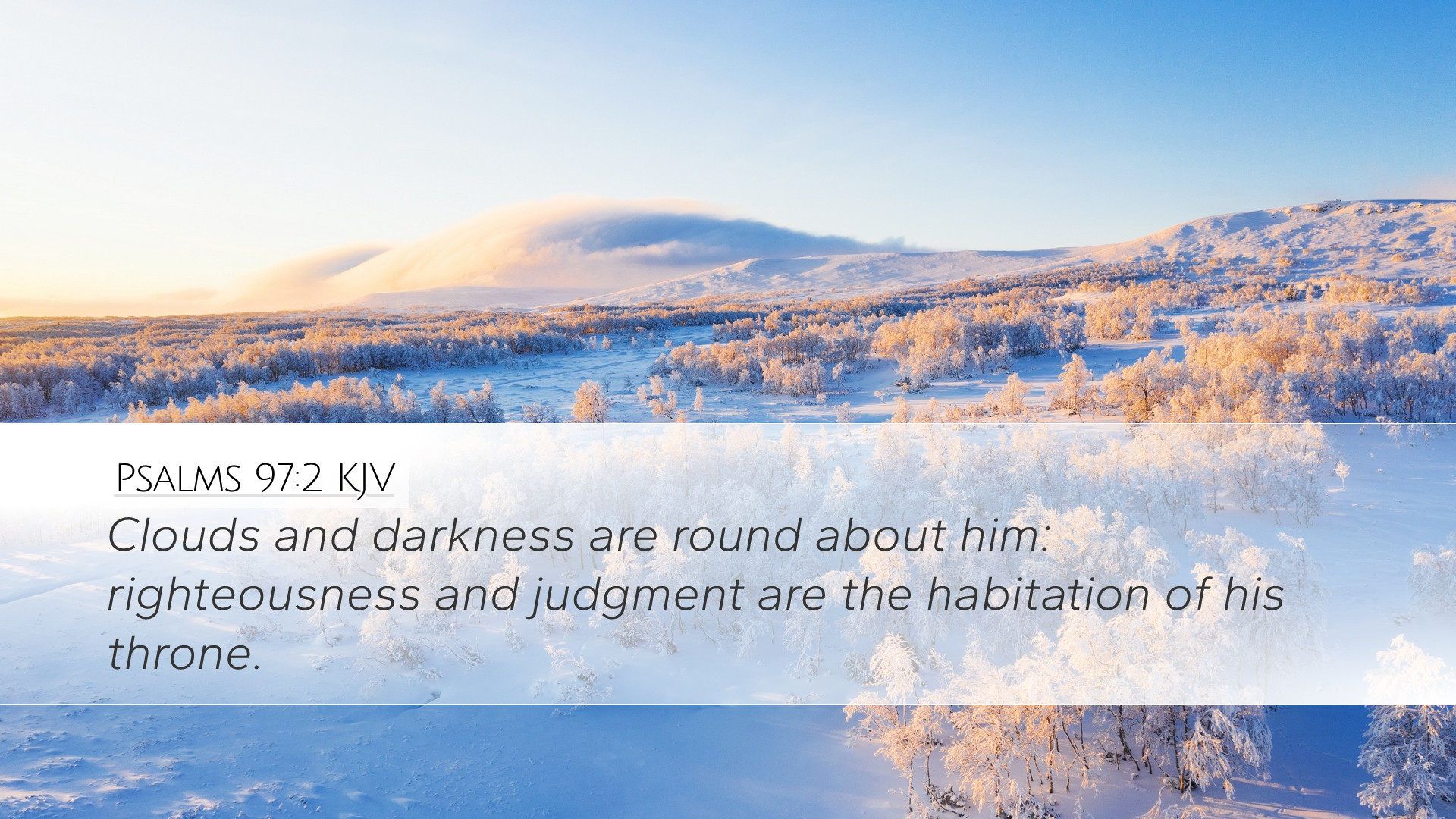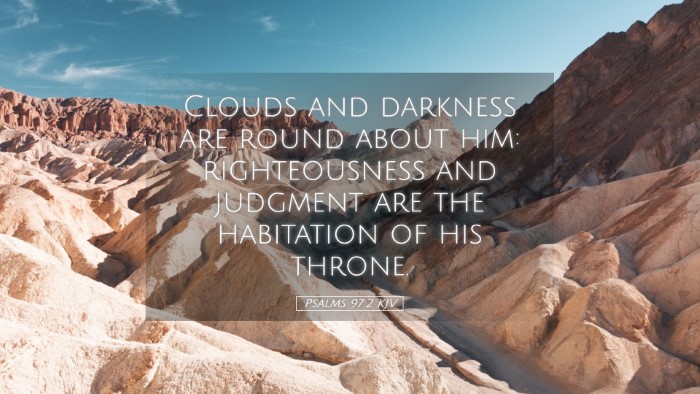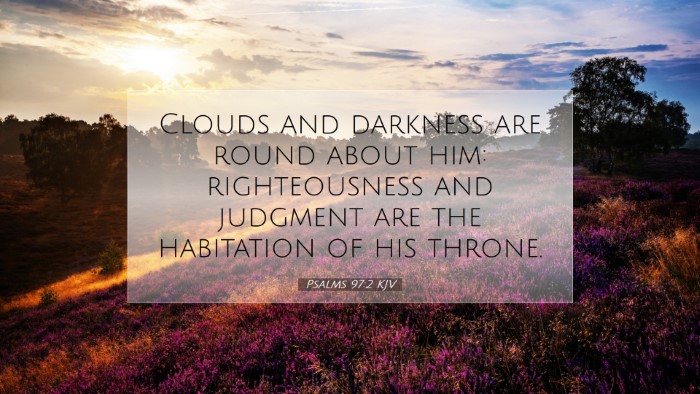Psalms 97:2 Commentary
Psalms 97:2: "Clouds and darkness are round about Him: righteousness and judgment are the habitation of His throne."
Introduction
The verse encapsulates the paradox of God's nature, signifying His majestic presence shrouded in mystery and awe. Public domain commentaries provide profound insights into the implications of divine sovereignty, righteousness, and the understanding of God's character. This exposition merges the thoughts of Matthew Henry, Albert Barnes, and Adam Clarke, offering a comprehensive analysis that is beneficial to pastors, students, and theologians.
The Nature of God's Presence
Henry notes that the 'clouds and darkness' symbolize divine majesty and the unapproachable holiness of God. This imagery emphasizes that God’s presence is often attended with obscurity and awe, reflecting the seriousness of divine encounters. Similarly, Clarke points out that while God's nature entails concealed mysteries, believers are invited to trust in His righteous judgment amidst obscurity.
The Significance of Clouds and Darkness
- Symbol of Divine Majesty: The clouds represent God’s celestial majesty, indicating that His presence can be overwhelming and beyond human understanding.
- Representation of Judgment: Darkness often signifies judgment and impending justice, reminding us of God’s role as the ultimate judge.
- Encouragement to Seek God: Given the enigmatic nature of God described, believers are encouraged to seek understanding and draw closer to Him through faith.
The Righteousness and Judgment of God
In contrast to the obscurity that surrounds God, the latter part of the verse declares that "righteousness and judgment are the habitation of His throne." Barnes emphasizes that righteousness is foundational to God's character and administration of the universe. Here, we see a dichotomy that invites deeper examination of God’s justice and moral perfection.
The Characteristics of Righteousness
- Morality: God’s righteousness reflects His absolute moral perfection, a quality that governs His actions and decisions.
- Faithfulness: Righteousness assures us that God is faithful to His promises and will uphold justice.
- Impartiality: God’s judgment is impartial and fair, ensuring that all are held accountable for their actions.
- Hope for Believers: For the faithful, the concept of God's righteousness offers comfort, knowing that their struggles and injustices are acknowledged by the One who rules justly.
Theological Implications
The combination of obscurity and righteousness in God’s character invites crucial theological discussions. Adam Clarke emphasizes that understanding God's ways requires humility and acknowledgment of our limitations. Faith, then, is essential in our relationship with a God who, while hidden in clouds and darkness, is entirely righteous and just.
Practical Applications for Believers
- Trust in God’s Sovereignty: Believers are called to trust in God's sovereign governance of the world, even when His ways are perplexing.
- Embrace Righteousness: The faithful are encouraged to live righteously, emulating God's moral framework in their daily lives.
- Seek Justice: Inspired by God's impartiality, Christians are urged to advocate for justice and righteousness in societal contexts.
Conclusion
Psalms 97:2 beautifully balances the awe-inspiring aspects of God’s nature with the reassuring truth of His righteousness. Matthew Henry, Albert Barnes, and Adam Clarke collectively present a picture of a God who is both majestic and just, inviting believers to navigate the complexities of faith amid uncertainty. This verse serves as a timeless reminder that, though clouds and darkness may obscure the divine, His throne is firmly established on righteousness and judgment, assuring us of His ultimate authority and fairness in all matters.


